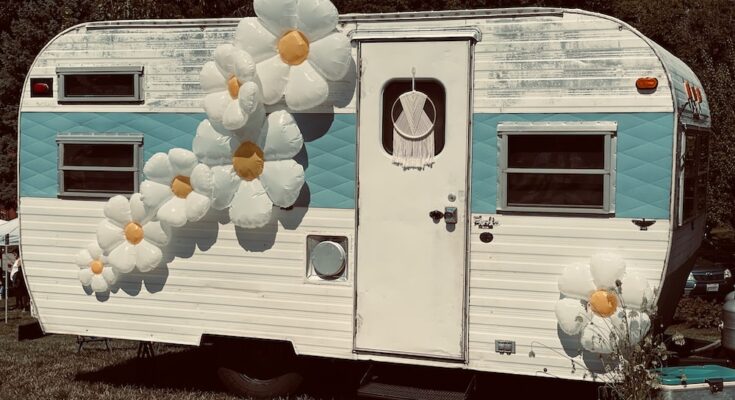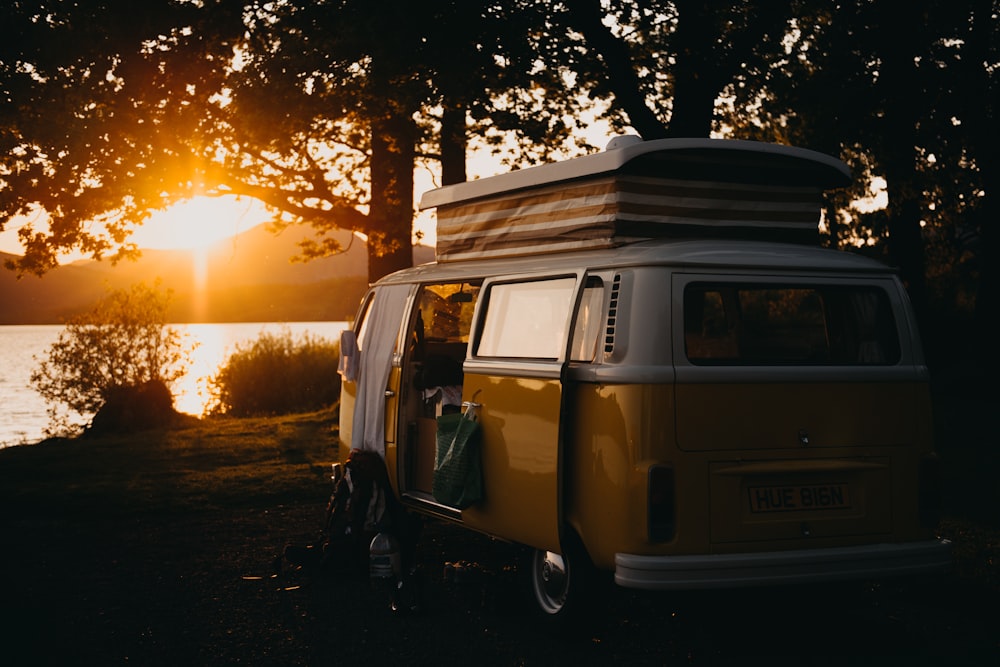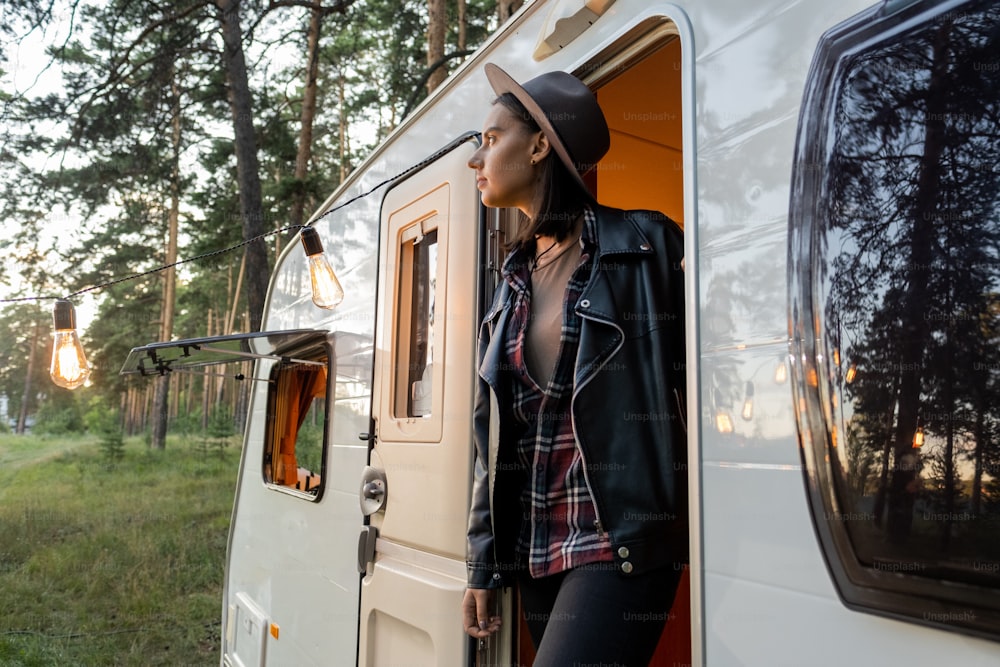Living in a RV: Travel and lifestyle
If you’re ready for the adjustment, living in an RV might be a dream come true, but if you’re not, it can quickly turn into a complete nightmare. Before you really leave, thoroughly consider your choice and get ready for your new way of life.
Know your reasons: living in a RV
Image via Unsplash.com
Living in an RV might be very different from living in a traditional home, so you need to have a compelling reason to stick with it if you want the experience to be successful. Though there are no unambiguous “right” or “wrong” explanations, a justification that sounds compelling to you will typically enough.
Those who opt to live full-time in an RV typically include retirees and those who move about a lot owing to their jobs. However, if you yearn to travel across the country or want to live a simpler life, this can also be a fantastic life choice for you.
Consult your family and friends
Even while living in an RV gives off a feeling of freedom, the reality is that you’ll be living in tight quarters and spending a lot of time with your family. Any opposition to the way of living will inevitably and unwelcomely lead to conflict in your daily existence.
Make sure your children, your spouse, and any minor children you may have agree to the plan if you have any. The challenge of homeschooling should be anticipated by the whole family.
Practice before you actually commit: living in a RV
Image via Unsplash.com
It’s a good idea to try an RV out before you buy if you’ve never stayed in one for an extended amount of time. Try taking a weeklong or monthlong vacation in an RV you may rent or borrow. You’ll have a better understanding of what living in an RV permanently may be like after doing this.
You need to have lived in an RV before you can drive one, even if you have experience towing large trailers. Get a good sense of how the car feels to drive, plan and schedule your trips, create a budget for life on the road, and live simply every day.
Know licensing laws: living in a RV
Most of the time, driving or towing an RV won’t require a special driving license, but there are some exceptions. Before you begin any additional preparations, find out about the licensing regulations in the state where your permanent address is located and adhere to them.
To learn what the rules are, contact the state DMV. You might need a different license for a different vehicle class if your motorhome is particularly large, but since an RV is a personal vehicle, you shouldn’t require a commercial driver’s license.
Have a backup plan: living in a RV
Image via Unsplash.com
The unpredictability of life means that a lot of things could go wrong and keep you from living in an RV for an extended period of time. Prepare a backup plan for your way of life in case something unexpected happens. You’ll need to plan your accommodations and financial arrangements if your RV breaks down or if you experience health issues that prevent you from travelling.
Make sure you have enough insurance for both your health and the insurance of the RV.
Try to keep enough money in savings to last you for a full year without your RV.
Work out arrangements with family or friends if you can so that you can stay with them for a month or two.
Choosing the best RV
Image via Unsplash.com
In general, motorhomes, fifth wheels, and travel trailers are the three main RV styles utilized for full-time habitation. Your preferences and financial capabilities will determine which option is best for you.
Campers that are pulled by a bumper called travel trailers. The least expensive but smallest option is them.
A truck bed can be used to tow fifth wheels, which are larger RVs. You’ll still need a different truck to tow it, even if they are bigger than travel trailers and less expensive than motorhomes.
The most costly and practical choice are motorhomes. When compared to attaching a motorhome to another vehicle, they provide more storage capacity and allow for direct driving.
Lessen your possession: living in a RV
Image via Unsplash.com
In an RV, you won’t be able to store as many items as you could in a typical house, to put it simply. If there is anything you don’t need, make a plan to throw it away or store it.
Instead, then sticking to what you want, go through your possessions and take only what you need. This probably isn’t the lifestyle for you if you can’t part with your unneeded possessions.
The best course of action is usually to get rid of your surplus belongings. Sell as much as you can to make the extra cash, then give or toss the rest.
Consider gifting heirlooms, mementos, and photographs that have sentimental value to other family members or storing them. However, if you rent space, you’ll need to account for storage costs in your monthly spending plan.
You can always store the extra items in your fixed house or flat if you intend to stay there. The most expensive choice, but one that you should consider if you have any doubts about whether you’ll stay in an RV permanently.
Have a permanent address
Image via Unsplash.com
You don’t have to keep up a fixed flat or house, but for the sake of taxes and other legal requirements, you do need to have some sort of permanent address.
Before you can obtain and retain a driver’s license from that state, all states demand proof of residency. An address is also required to create a bank account and keep up utility accounts. Having a post office box is frequently insufficient; you may also require a real, permanent address.
Use your adult children’s or other family members’ addresses instead of maintaining a fixed flat or home if you can’t afford to (of course with their consent). You can get the required street address from several mail forwarding providers as well.










